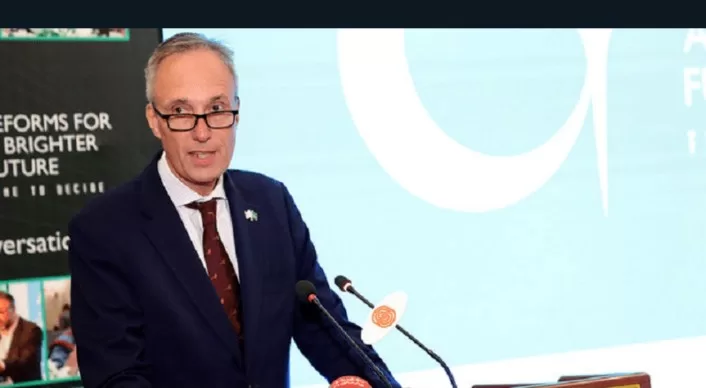ISLAMABAD, The World Bank has cautioned Pakistan against relying on short-term measures like domestic debt restructuring and one-time investments through a new civil-military initiative. Martin Raiser, the World Bank’s regional vice president for South Asia, emphasized that creating a new institution is not a quick fix and urged the government to address larger issues through reforms in the business climate, taxation, and human capital.
Raiser highlighted the limitations of the Special Investment Facilitation Council (SIFC), stating that while it may attract investment temporarily, it does not provide a sustainable solution to Pakistan’s challenges. The International Monetary Fund (IMF) also advised against creating a group of preferred investors, emphasizing the importance of transparency and accountability in SIFC-led investments.
Responding to questions, Raiser noted that domestic debt reprofiling might not always be effective without sustained structural reforms supported by the IMF. He emphasized the need for careful consideration to avoid negative impacts on banks and overall economic growth.
Najy Benhassine, World Bank’s country director for Pakistan, expressed hope for disbursement of up to $2 billion during the current fiscal year, contingent on timely elections and commitment to reforms by the present and new governments.
Raiser stated that the World Bank had engaged with major political parties, including PTI, PML-N, PPP, and MQM-P, to address the country’s challenges through upfront reforms. He stressed the importance of tackling longstanding issues such as low taxation on agriculture and real estate, which hampers investment in critical sectors.
The World Bank launched a series of policy notes outlining critical policy shifts needed for a productive, sustainable, resilient, and healthy Pakistan. These notes focus on areas such as child stunting, fiscal sustainability, private sector growth, energy, poverty, agriculture, and climate change. Raiser urged Pakistan to decide between maintaining past patterns or taking crucial steps towards a brighter future.
The policy notes recommend addressing the human capital crisis and adopting coordinated cross-sectoral approaches to basic services. Raiser advocated for major policy shifts, including reforms in spending and revenue expansion, to produce additional resources equivalent to 7% to 9% of GDP. These resources could address significant challenges and support sustained economic growth with structural reforms over the next decade.




